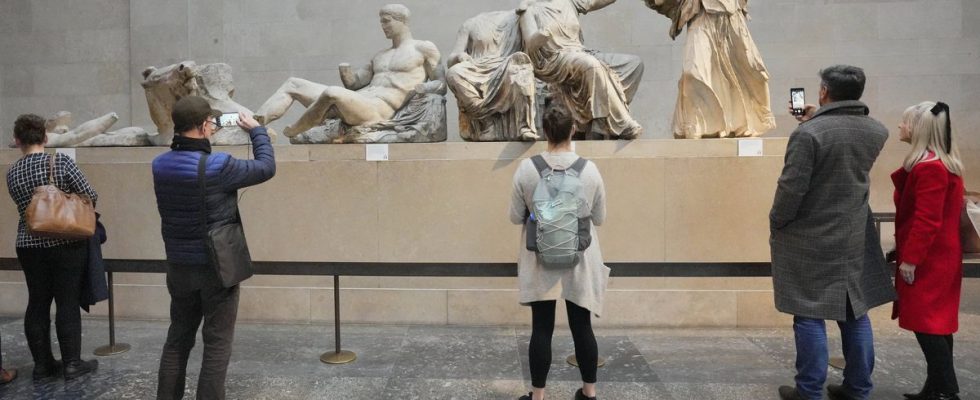An imbroglio around the Parthenon friezes exhibited at the British Museum, and it is the diplomatic relationship between the United Kingdom and Greece which is seizing up. At the house of 20 minuteswe summarize the situation for you.
What happened ?
The Greek Prime Minister has cut short a visit to the United Kingdom, after the cancellation of a meeting planned for Tuesday with his British counterpart. On Monday, British Prime Minister Rishi Sunak canceled a meeting scheduled for midday on Tuesday with his counterpart Kyriakos Mitsotakis, who expressed his “dissatisfaction” and cut short his visit, according to Athens.
The origin of the tension? The Parthenon friezes on display at the British Museum. Athens demands the return of the work, London refuses. “Greece’s positions on the issue of the Parthenon friezes are well known. I was hoping to have the opportunity to discuss it with my British counterpart,” lamented Kyriakos Mitsotakis. On Tuesday, Downing Street explained the cancellation of the meeting by saying that the Greek leader had failed to keep his commitment not to use his visit as a “public platform” on the issue.
Who owns these friezes?
London claims that the sculptures were “legally acquired” in 1802 by the British diplomat Lord Elgin who sold them to the London museum. Greece maintains that they were the object of “looting” while the country was under Ottoman occupation. Kyriakos Mitsotakis, an ardent supporter of a return of the famous ancient marbles to Athens, told the BBC that keeping part of the Parthenon friezes outside Greece amounted to “cutting Mona Lisa (the Mona Lisa) in two”.
“It is not a question of ownership for me, it is a question of reunification” of friezes scattered in particular between the Acropolis Museum and the British Museum in London, he added. “The issue of marbles was on the agenda of the meeting among other bilateral and international issues as it has been in the past (…) Downing Street was aware,” insisted a Greek government source on Tuesday .
What’s next?
For Greece, the solution could come from the British opposition. The Greek Prime Minister, on the other hand, met the leader of the Labor opposition Keir Starmer, given the winner by the polls in the elections scheduled for next year. The Labor leader said before the interview that he would tell the Greek prime minister that a Labor government would not change the law, but would not oppose a loan that would be acceptable to the British Museum and the Greek government.
Rishi Sunak has always been “consistent” and believes that the Parthenon marbles are “an important asset” for the United Kingdom, which has “safeguarded” this heritage for “generations”, his spokesperson said on Monday. At the top of the Acropolis, the Parthenon is a temple built in the 5th century BC in homage to the goddess Athena. The new Acropolis Museum, inaugurated in 2009, has reserved a location to house the Parthenon friezes.

